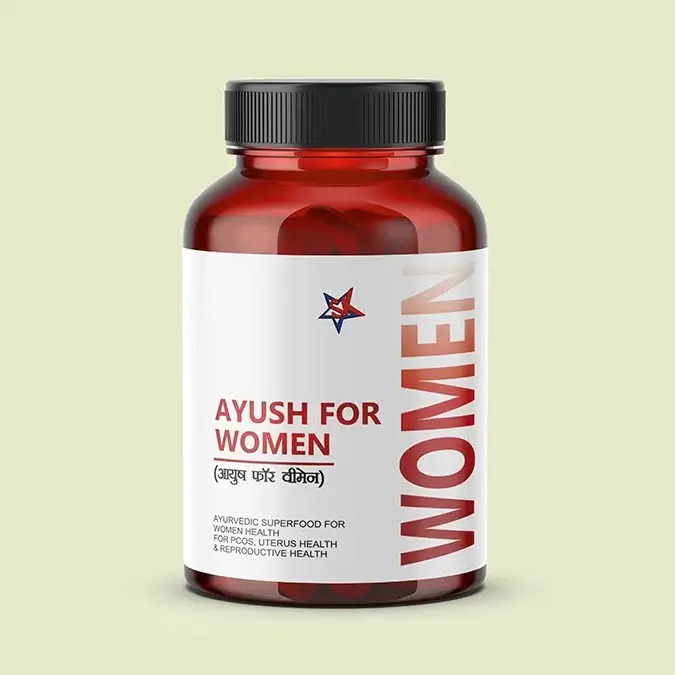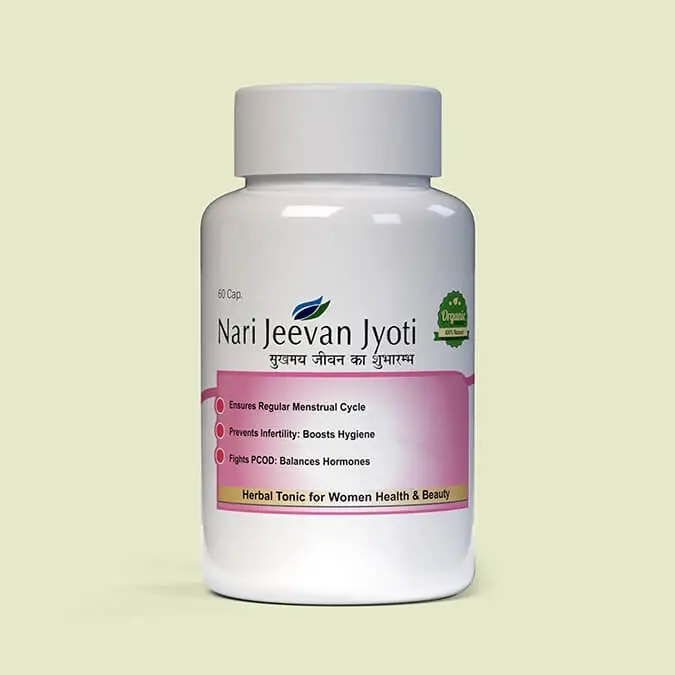Hormonal imbalances in the body lead to certain diseases, such as PCOS and PCOD, which are very common among women of reproductive age. In PCOS, the androgen hormone increases and cysts develop within the ovaries, while in PCOD, immature eggs are produced. As a result, hormonally swollen ovaries come into existence, creating more abnormalities within the female body.

PCOS patients are more likely to face certain challenges like heart disease, high blood pressure, type 2 diabetes, or, if not treated properly, endometrial cancer, which would be the last fatal condition. In this condition, suggestions for medical treatments could negatively impact your hormonal regulations and insulin level. Hence, it’s better if you could go with the natural treatment for hyperandrogenism (PCOS), which nevertheless has less impact on the body. These natural treatments could help you manage a better lifestyle, which is a plus.
Along with that, PCOS can never be treated fully in one go. Hence, it requires a proper lifestyle change, so you have to make informed decisions by taking charge of your life and altering your previous routine.
Try Ayush For Women For PCOS Management
A Brief Overview of PCOS
It’s always a debate about PCOD vs PCOS; let’s settle it all and understand what these diseases actually are. While talking about PCOD, it is a common hormonal disorder that could be due to your irregular lifestyle, stress, or obesity issues. In this condition, your ovaries start to produce immature eggs, but it does not have that much impact on the pregnancy; only a few medical follow-ups are required.
On the other side, PCOS is a severe form of PCOD, which could be a cause of anovulation and have an impact on women’s fertility. The chances of premature births and miscarriage are also present in PCOS. The PCOS could be a genetic, environmental, or lifestyle irregularity.
These diseases are the by-products of hormonal imbalances, which impact not only the reproduction or ovulation process but also mental and metabolic disturbances such as depression, insulin resistance, weight issues, hair loss, fatigue, etc.
As per the World Health Organization, Polycystic ovary syndrome (PCOS) impacts approximately 8–13% of women in their reproductive span. The alarming situation is that up to 70% of PCOS-affected women stay undiagnosed around the globe. Therefore, it’s essential to maintain your health to keep your hormones in balance.
Nutrition’s Role in Hormonal Balance
A certain risk of chronic diseases is attached to PCOS and PCOD if you are not managing your diet properly. The diet has a crucial role in promoting a balanced hormonal life and reducing symptoms.
For PCOS/PCOD patients, the Mediterranean diet is recommended, which includes olive oil, omega-3-rich fish, beans, proteins, and fruits. Moreover, a PCOS treatment diet includes fiber nutrients and antioxidants, lentils, leafy greens, and vegetables like spinach, cauliflower, lettuce, brown rice, and bread; in fruits, you can take berries, either strawberries or blueberries.
However, you should avoid certain foods like fried foods, red meat, processed snacks, alcohol, white rice, tea, fatty items, etc.
Try Nari Jeevan Jyoti for Hormonal Balance
Lifestyle Modifications for PCOS/PCOD
Keeping a check on your weight is also essential to managing hormonal balance in PCOS and PCOD conditions. Hence, some modification in your lifestyle is necessary.
Regular physical involvement helps to level up testosterone, which means less stress. You must get 20 to 30 minutes of exercise daily after meals or 120 minutes of intense exercise in a week. Aerobic exercise, swimming, and brisk walking are some of those that would be helpful for you.
However, you can also do mind exercises like meditation, yoga, deep breathing, pilates, or tai chi, which help reduce the cortisol level, a stress hormone. Besides this, you also have to make a proper sleep schedule for 7-8 hours of adequate sleep, as it is helpful in stress management techniques.
Coping Techniques and Emotional Support
The life of PCOS/PCOD patients is never straight; it is necessary to acknowledge your emotional well-being and work on it. To calm down your emotions, you can practice journaling or engaging in mindful activities. Meanwhile, you can spend time exploring nature or doing your favorite hobby. Listening to calm music is also helpful for managing your stress and anxiety.
If you feel you need to be less depressed, you can also choose to seek professional help for emotional support. In this digital era, there are multiple online platforms where you can connect with people with similar conditions, which will help you gain emotional strength.
Herbal and Natural Remedies
To ease your PCOS/PCOD impacts, like irregular periods or the production of androgens, herbs are productive. You must take natural supplements like ashwagandha, chasteberry, maca root, or holy basil licorice root to control blood sugar, depression, and cortisol levels. In herbs, Vitex agnus-castus and Cinnamomum cassia are famous and helpful for fertility, insulin, sugar, and menstrual regulation.
Make sure to consult your doctor or seek professional help before taking any of these herbs, as everybody reacts differently, so a doctor’s recommendation is suggested.
Mind-Body Connection and Holistic Healing
PCOD/PCOS is not limited to physical illness only; it has a direct link with the mind. Your improper physical health impacts the mind, which results in anxiety and depression, which means worse disease symptoms. Hence, it is essential to acknowledge this mind-brain connectedness to deal with the disease. You can adopt Ayurveda, acupuncture, or Chinese treatment medicine to eliminate pain, fatigue, digestive issues, and improper balance flow.
Hence, exploring this comprehensive care could help in holistic healing along with regular medicine treatment. But you must get professional PCOS help before doing any medical experiments on your body.
Creating a supportive environment
A supportive and caring environment does wonders for patients. The environment provides a sense of belonging and boosts morale to combat the illness. Family and friends have a crucial role here; discuss openly with them. Only expressing your emotions and having direct communication with loved ones help fight against the disease.
You can also join Facebook groups like the PCOS Support Group or check out the My PCOS team for online support and communication.
Conclusion
A disease like PCOS or PCOD can never limit your well-being. Make yourself properly educated about the disease, symptoms, and prevailing elements with the help of your doctor, and create a proper routine plan. Make yourself ready to adopt natural approaches, like diet changes and stress management, to overcome the disease. You need to remember that your willpower can take this disease to its toes. Give PCOS/PCOD a good fight, as only you can do it.


